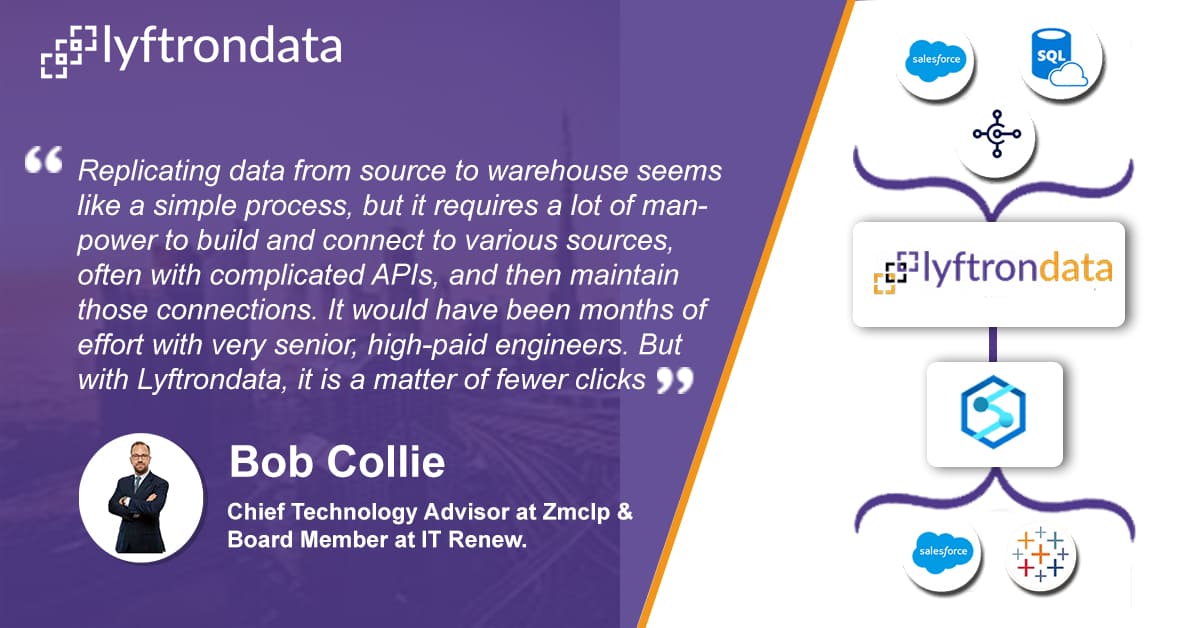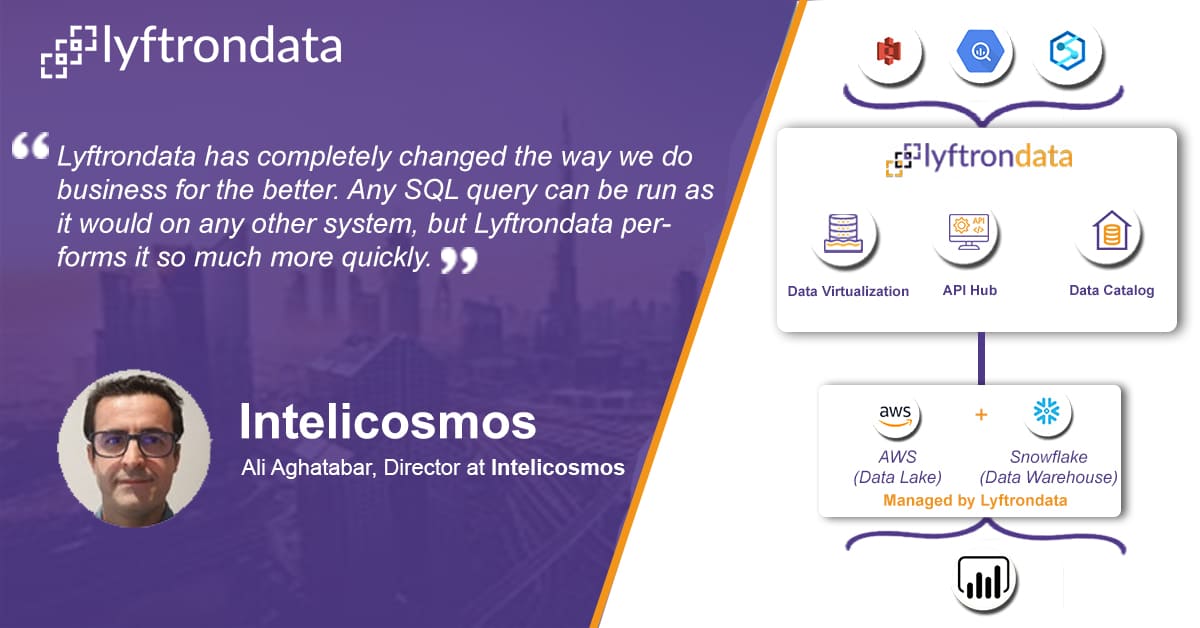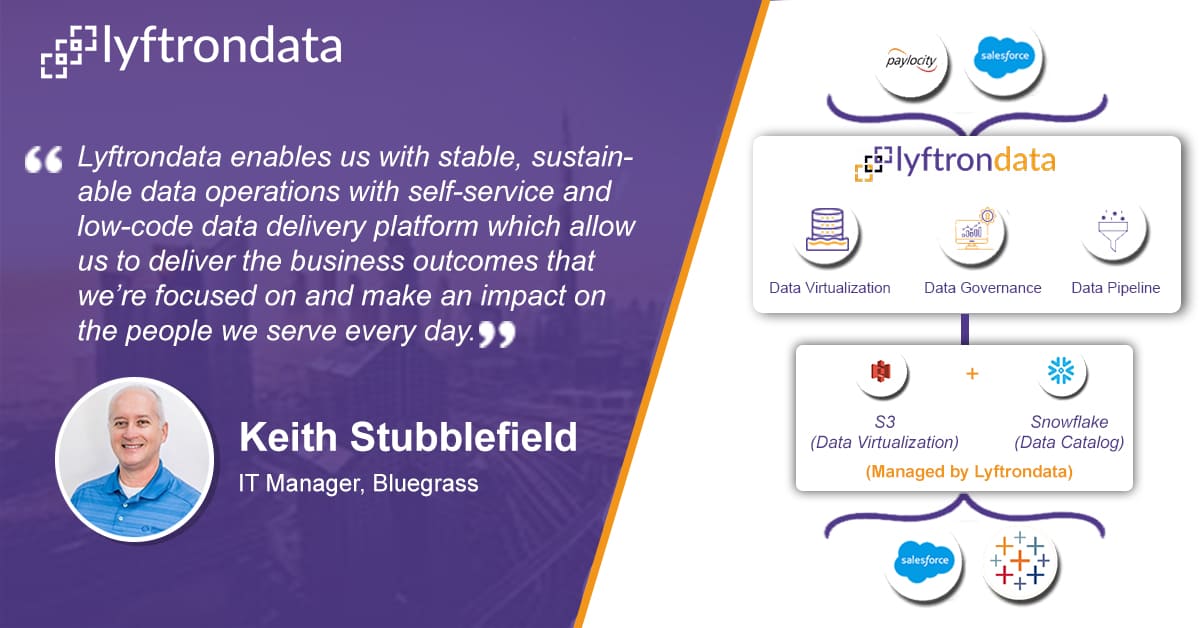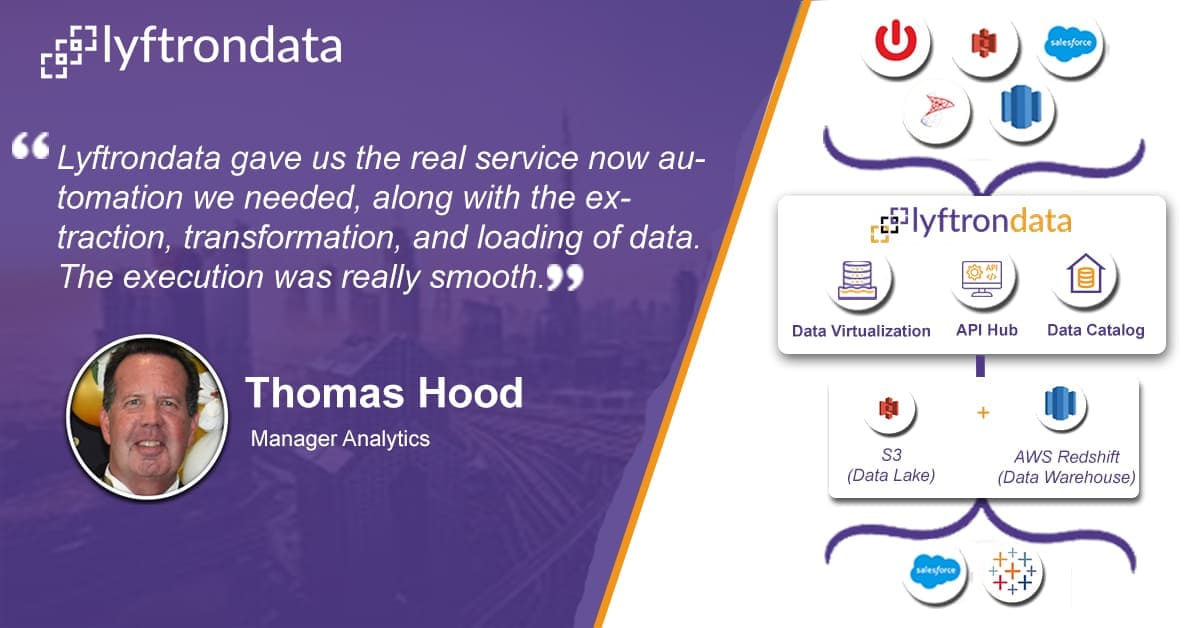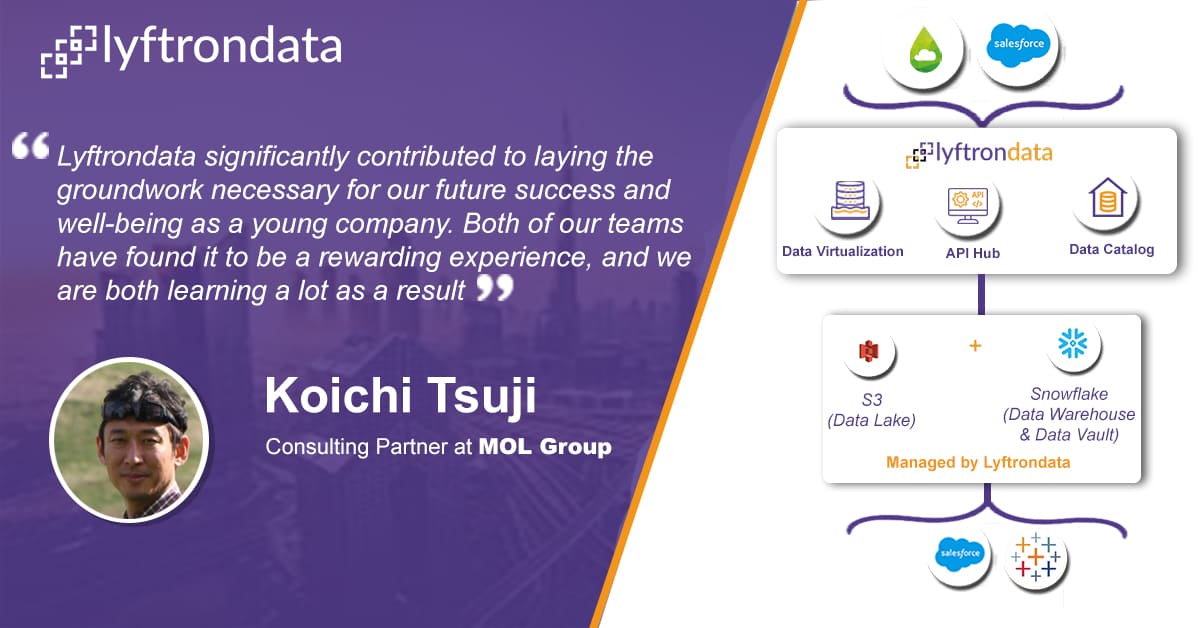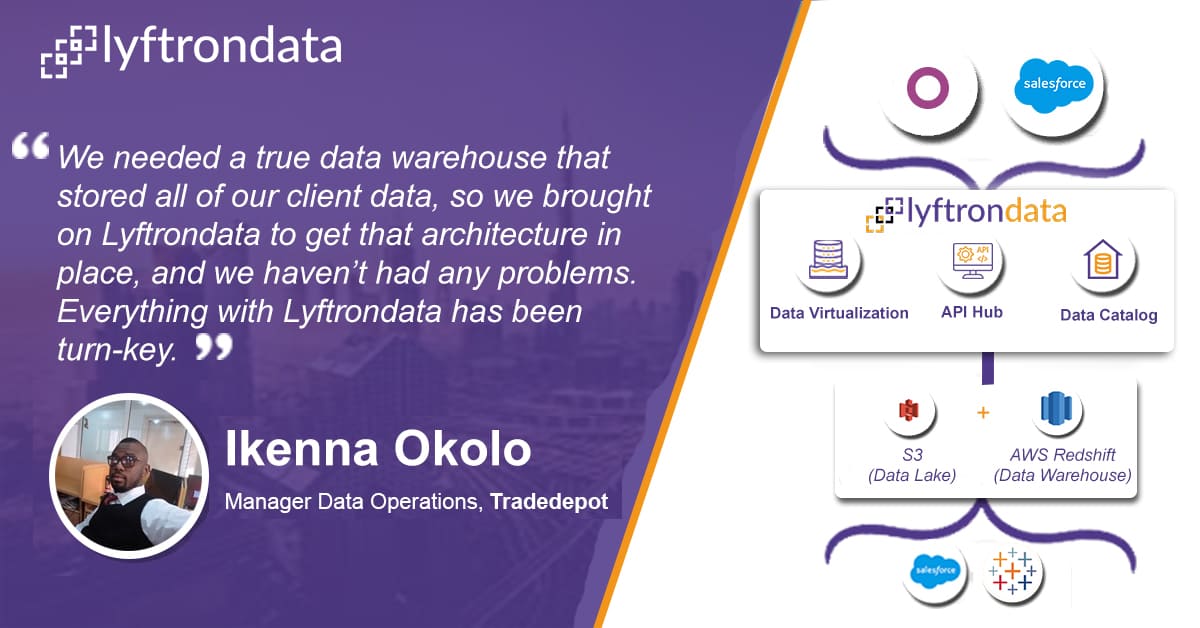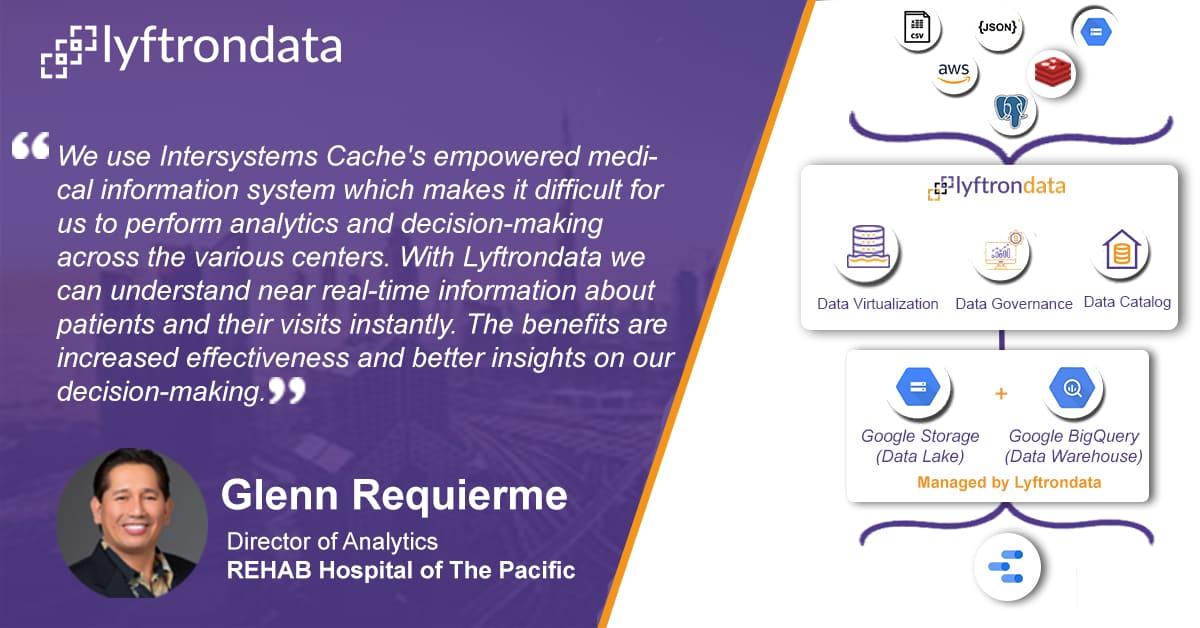200X Acceleration at
1/10th of the cost
Zero
maintenance
No credit card
required
Zero coding
infrastructure
Multi-level
security
Simplify Presto integration in
4 simple steps
Create connections
between Presto and targets.
Prepare pipeline
between Presto and targets by selecting tables in bulk.
Create a workflow
and schedule it to kickstart the migration.
Share your data
with third-party platforms over API Hub

Why choose Lyftrondata for Presto Integration?
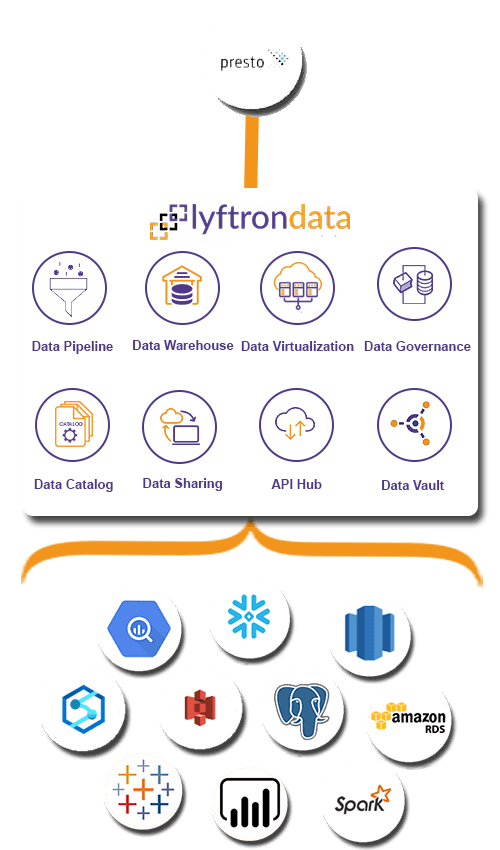

Simplicity
Build your Presto pipeline and experience unparalleled data performance with zero training.

Robust Security
Load your Presto data to targets with end-to-end encryption and security.

Accelerated ROI
Rely on the cost-effective environment to ensure your drive maximum ROI.

Customer's Metrics
Track the engagement of your customers across different channels like email, website, chat, and more.

Improved Productivity
Measure the performance of your team and highlight areas of improvement.

360-degree Customer View
Join different data touch points and deliver personalized customer experience.
Hassle-free Presto integration to the platforms of your choice
Migrate your Presto data to the leading cloud data warehouses, BI tools, databases or Machine Learning platforms without writing any code.
Hear how Lyftrondata helped accelerate the data journey of our customers
FAQs
What is Presto?
Presto Migration creates connected products for your small business clients by quickly integrating with the accounting, banking, eCommerce, point of sale, and payment software they use. It supports designers as they work to solve the connectivity issue with the next generation of products for small businesses.
What are the features of Presto?
Seamless SaaS connection: You can Seamlessly connect SaaS to your software to your customer's financial data using Presto Integration.
Payment automation: Payments Deliver automated reconciliation to your business customers with the Presto connectors tool.
Expense management: Presto ETL offers expense management integration to your business customers' transactional data with their accounting platform.
B2B payment synchronization: Presto Drivers platform enables seamless B2B payments Synchronizing your customers' payables and receivables data.
What are the shortcomings of Presto?
Hectic onboarding: The onboarding experience could be refined in Presto Integration.
Quaint database: Out-of-date data of Presto Connectors.
Several errors and glitches: Evident client-side error, 401,
Unauthorized: The supplied Presto API key is incorrect. 402
Stringent Repayments: Non-digital and manual applications and inflexible repayments with Presto ETL.
Make smarter decisions and grow your sales with Lyftrondata Presto integration





